For nine days I drive with customers of my agency through the three Baltic states. Lithuania, Latvia and Estonia.
This blog post contains unpaid advertisement. This trip was paid by myself and all I have written is my personal opinion. You´ll find affiliate links. If you buy a product through this link, you´ll not pay more, but I’ll get a small commission, that helps to go on with my blog.
We start in
Vilnius, the capital of Lithuania
Lithuania got almost three million inhabitants. Of these, about 700,000 live in Vilnius.
In the afternoon we arrive and only make a small round around the castle hill, as it rains and is quite cold. Actually, we want to climb the hill, but the cobblestones, wet from the rain, are too slippery for us. So, we look at the remains of the Upper Castle and the Gedemina Tower only from below.
Not only I am hungry, so we stop at the Mylkolo4 restaurant, a quaint location in a vault. With old frescoes and maybe antique tables and chairs.
The food is based on old recipes of the 18th century. Not quite cheap, but delicious!
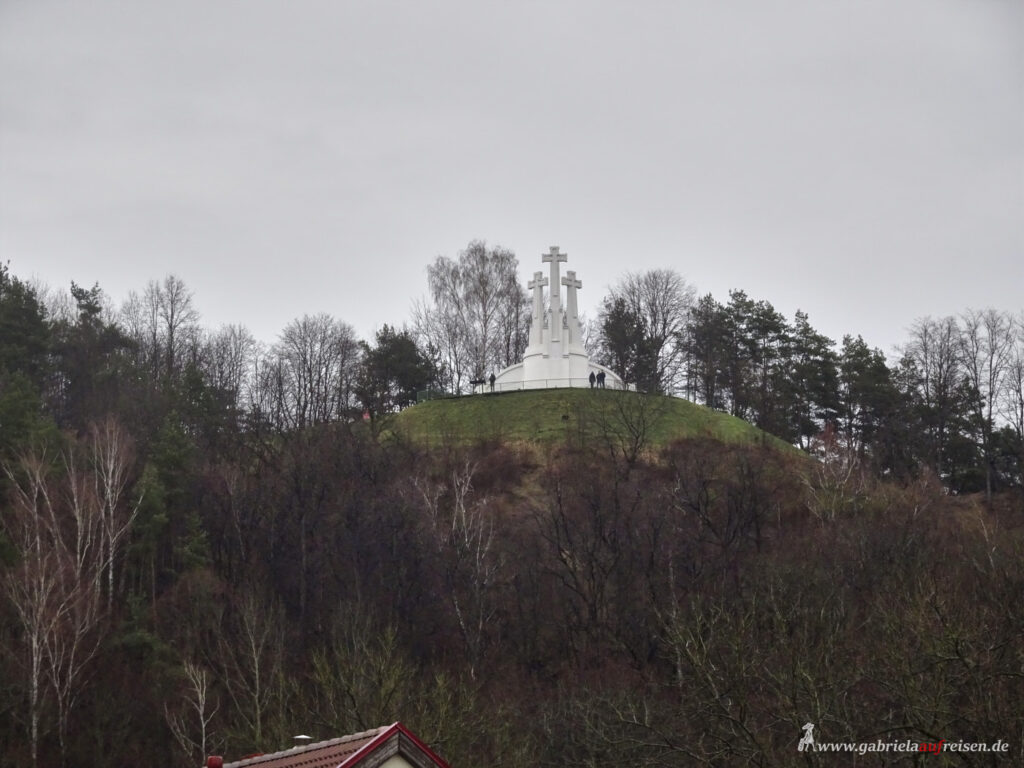
We only have to walk around two corners and we are back, standing in front of our hotel, the Hotel Vilnia. Here you are right in the city, see the famous three white crosses on the mountain opposite and could stroll directly through a park. The rooms are clean, big and quiet, the breakfast buffet very tasty, as we can see the next morning.
City Walk
And so in the morning we start our 4 km long discovery tour through Vilnius. Unfortunately, it still rains.
The starting point is the large free square in front of St. Stanislaus Cathedral, which is dominated by the bell tower, but is not connected to the church. To the right of the cathedral, the palace of the Grand Duke of Lithuania was reconstructed.
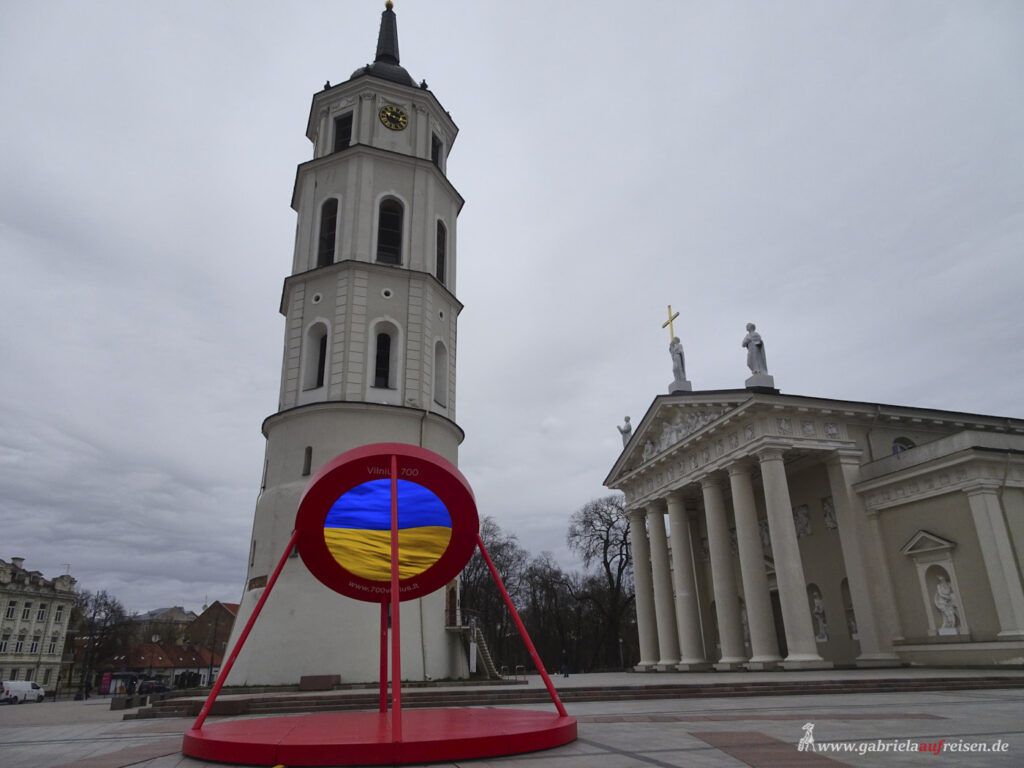
We cross the street at the Kempinski Hotel and are already in the old town. Put on comfortable shoes, because there are always longer distances to walk over cobblestones.
Soon I am standing in front of the presidential palace, which is situated on the broadside of a triangular square. Here, as everywhere, we see the Ukrainian colors, the solidarity for the almost neighboring country is great. Next door a part of the university is located.
The whole tour can be found at Komoot.
Again and again, we pass one of the forty churches of Vilnius, often monasteries were attached.
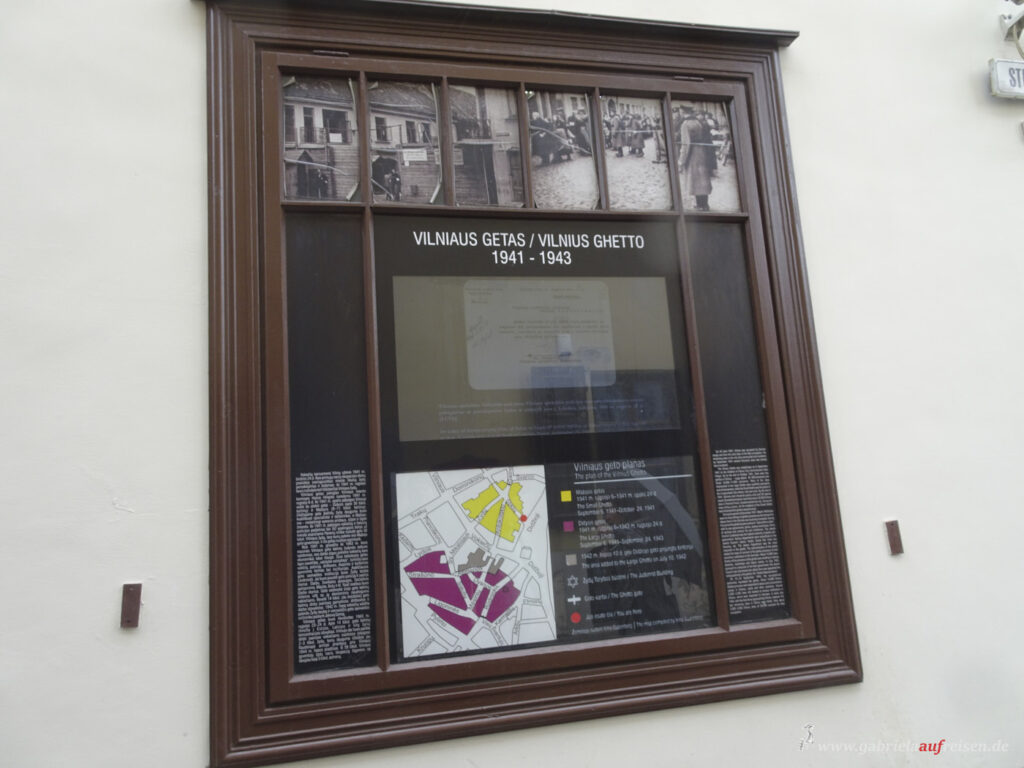
Particularly noteworthy is the Jewish Quarter in Vilnius, which covers a large part of the Old Town and later became a ghetto. A memorial plaque commemorates the 30,000 people who were killed during the Nazi occupation.
We visit the Russian Orthodox Church of the Holy Spirit. Inside it is painted with strong colors, mostly green and gold. Since the Orthodox Easter is coming up this weekend, it will be decorated with flowers. In my opinion, that will look very beautiful, as they already started with the decoration. Here, too, there is a monastery.
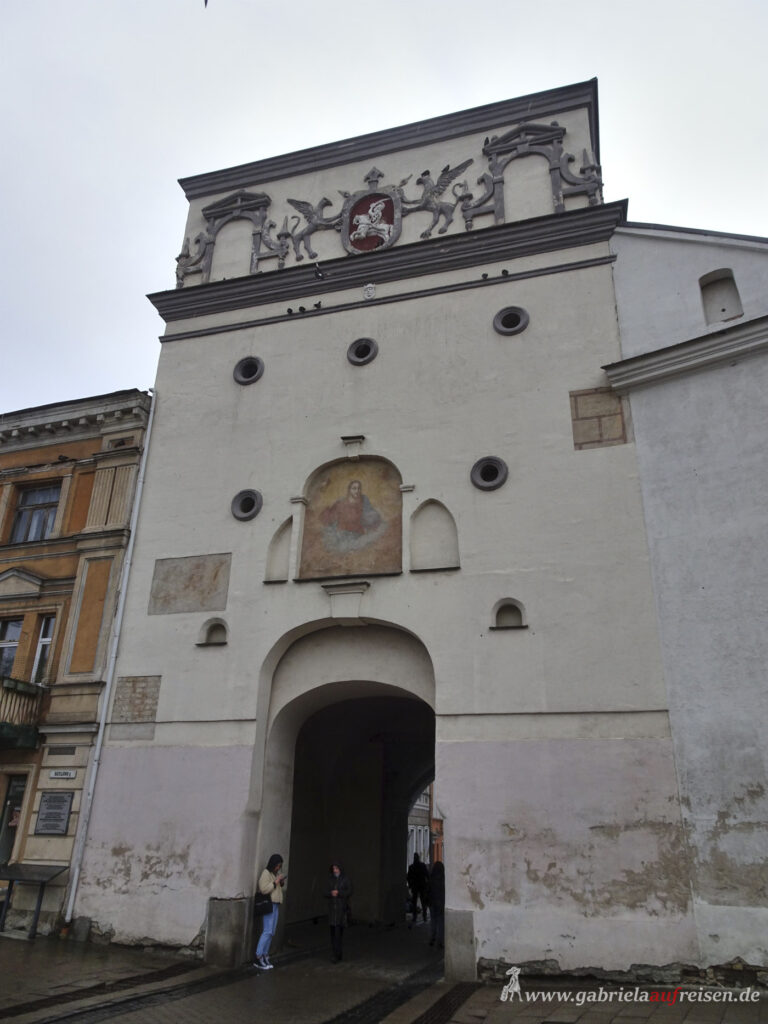
A few meters further we pass through the only surviving city gate of Vilnius. It survived the destruction and demolition only because inside there is a golden Madonna. It is also called gate of dawn as it faces east.
On a small part of the still existing city wall, we walk downhill along the bastion.
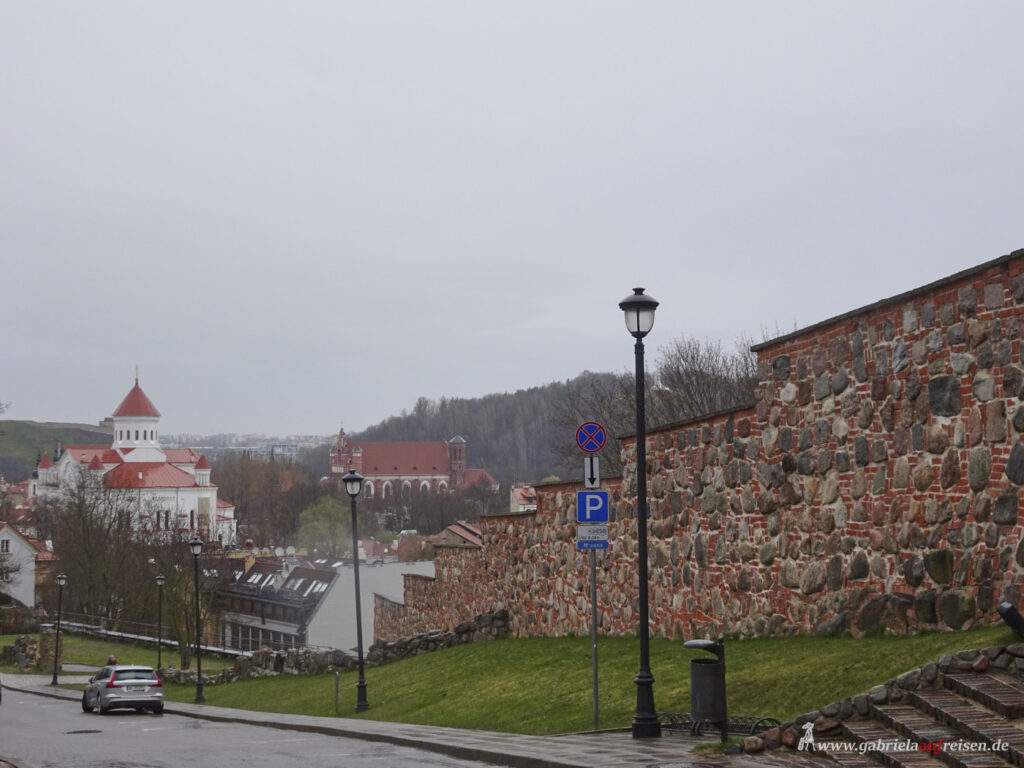
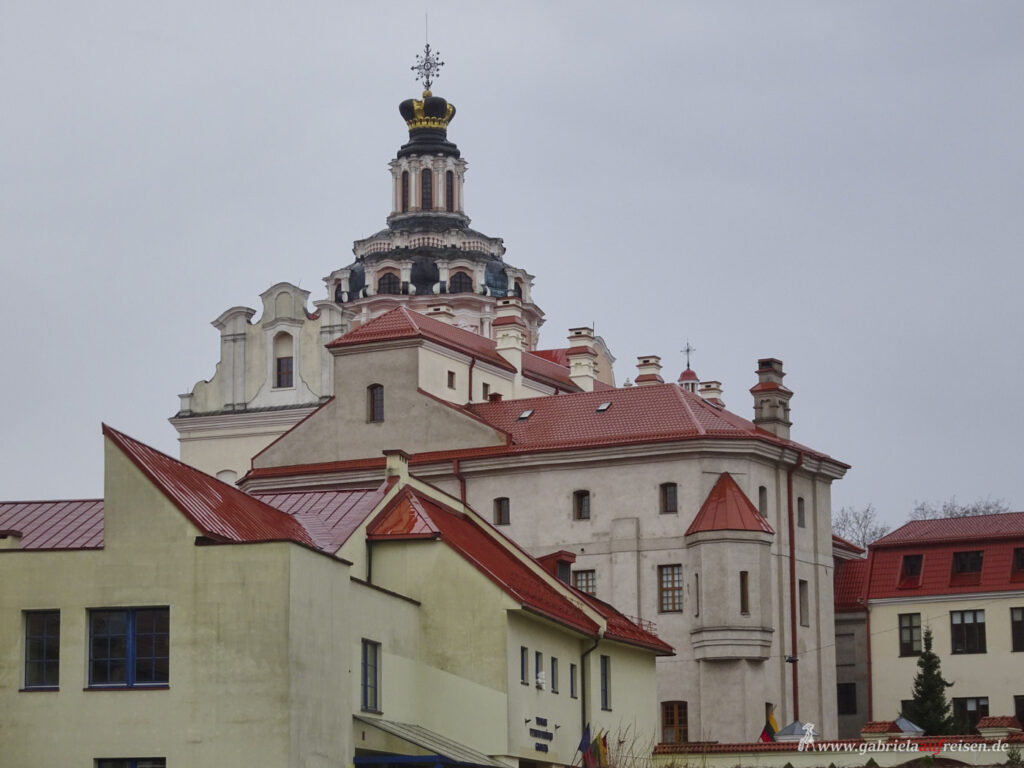
I have a “sweet tooth”, so I definitely take a break in the Poniu Laime pastry shop. Even in front of the shop, a delicious smell of freshly baked cake envelops me. A splendor inside and out! In addition to delicious cakes, there are also some hearty dishes.
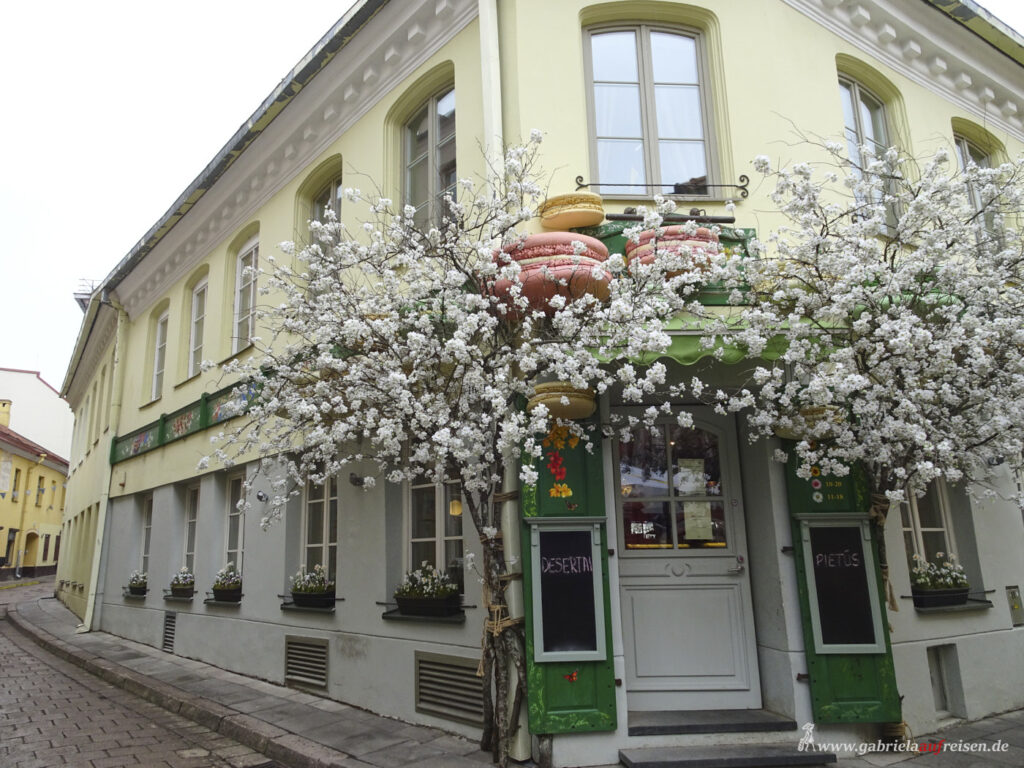
Artist Quarter
Soon we cross the small river Vilnius and stroll a little through the artists’ quarter Užupis. Before Lithuania’s independence, craftsmen lived and worked here. In the Soviet era, the neighborhood, which had existed since the 15th century, was very neglected, then rediscovered by artists and students after 1991 and gradually renovated. Particularly beautiful I find, is the 41-article “Constitution”, which is translated into many languages and hangs outside on a wall. The golden angel towers over the small market square.
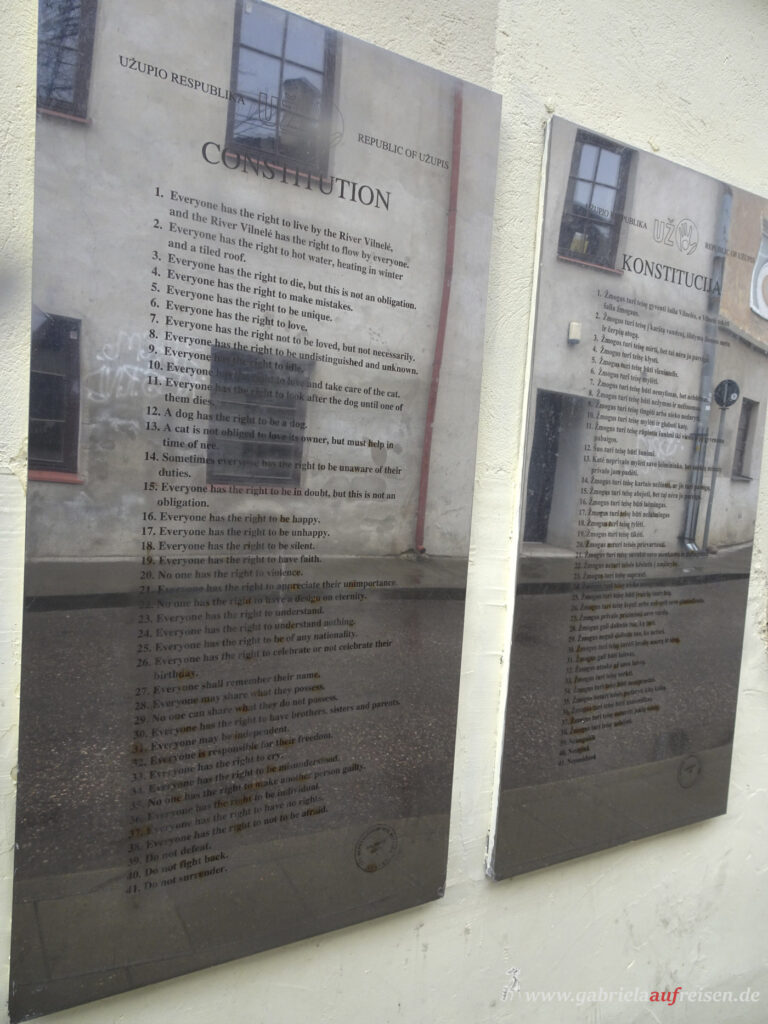
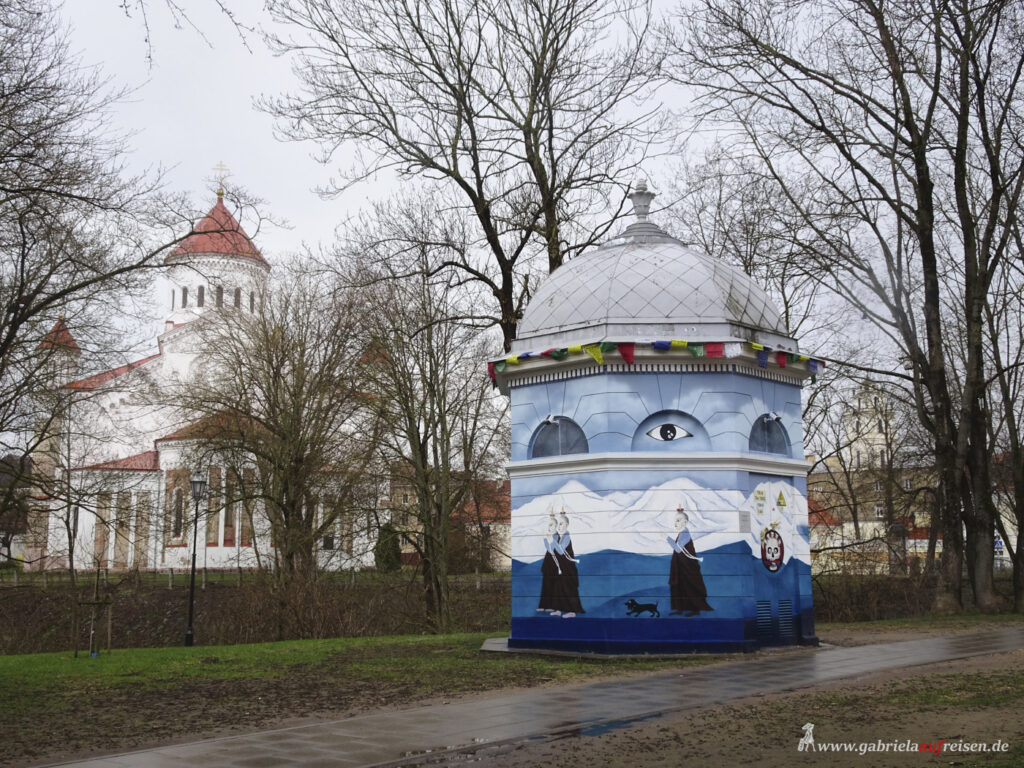
Afternoon Events
We start the afternoon with a visit to the baroque church of Peter and Paul. Destroyed in no war, the church is still the same today as it was when it was completed in 1685. Splendid frescoes cover the walls and the ceiling.
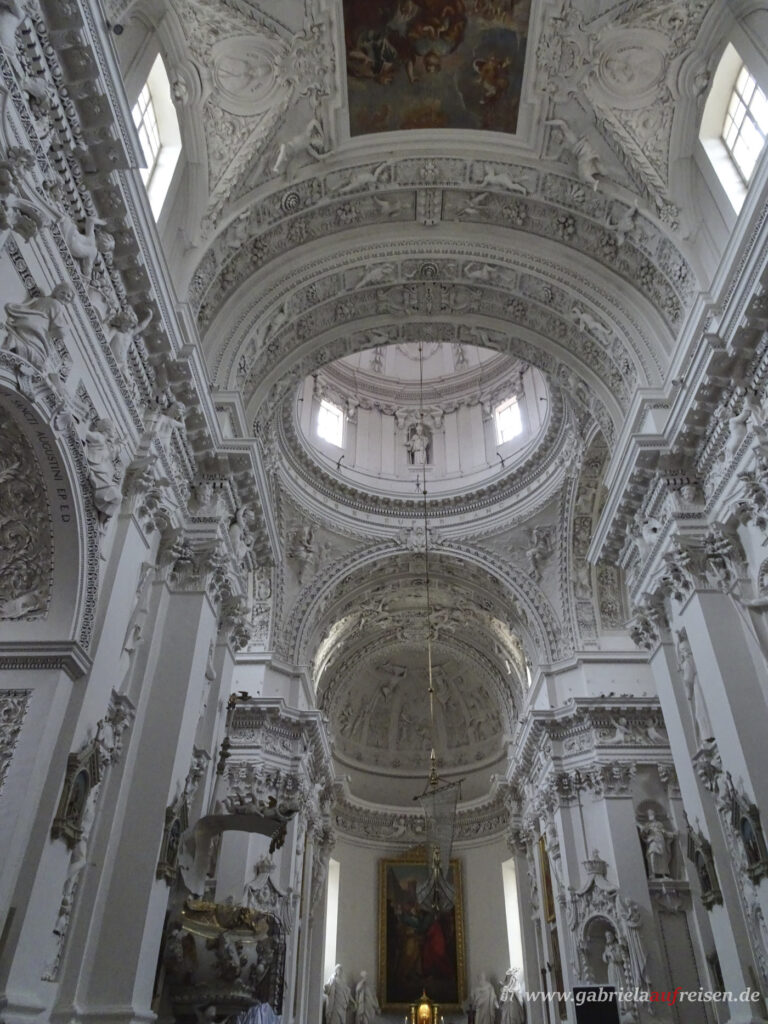
Beer tasting
The bus then takes us to one of the suburbs, to a former factory of the Lübeck (City in Northern Germany) manufacturer E. Possehl, who initially made scissors here. Later, scythes were added. Meanwhile, the Craft beer Brewery Dūmų Fabrikas has settled here, which always brings new beer creations to the market, e.g. Coconut beer or smoked beer. We try different varieties after receiving an introduction to the art of beer brewing. Changing events also take place in the former factory hall.
Normally I don´t like beer, but this is really interesting!
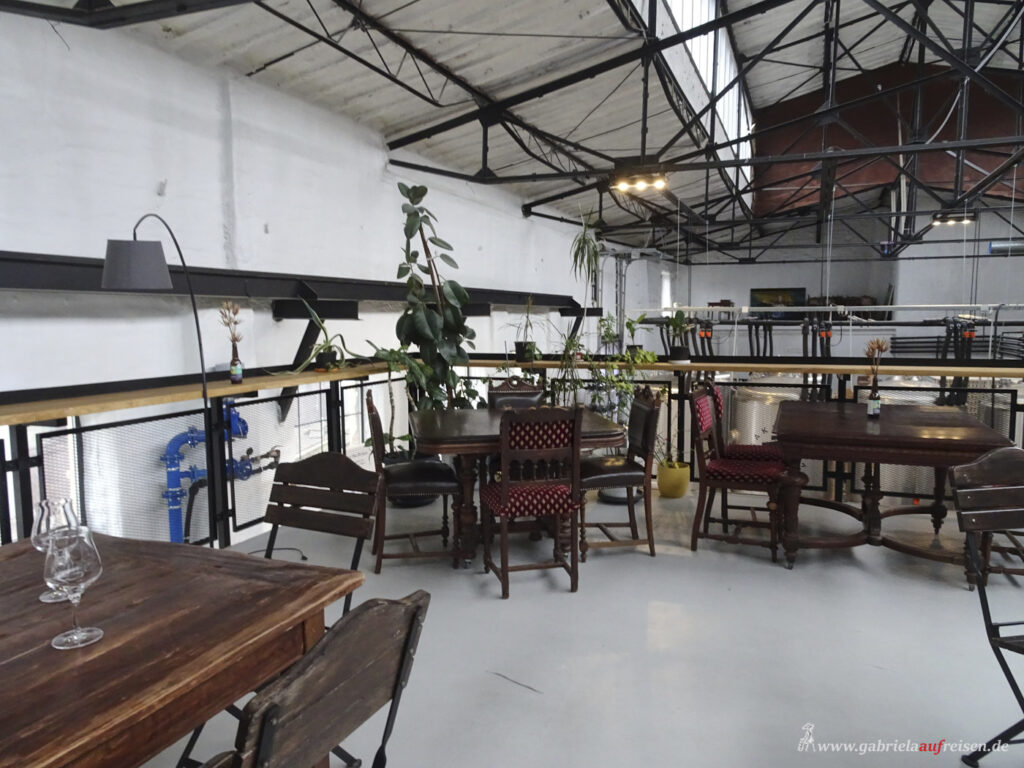
In the restaurant Grey we end the evening with Lithuanian specialties.
In the morning we head towards the coast to Klaipeda, formerly Memel.
Trakai
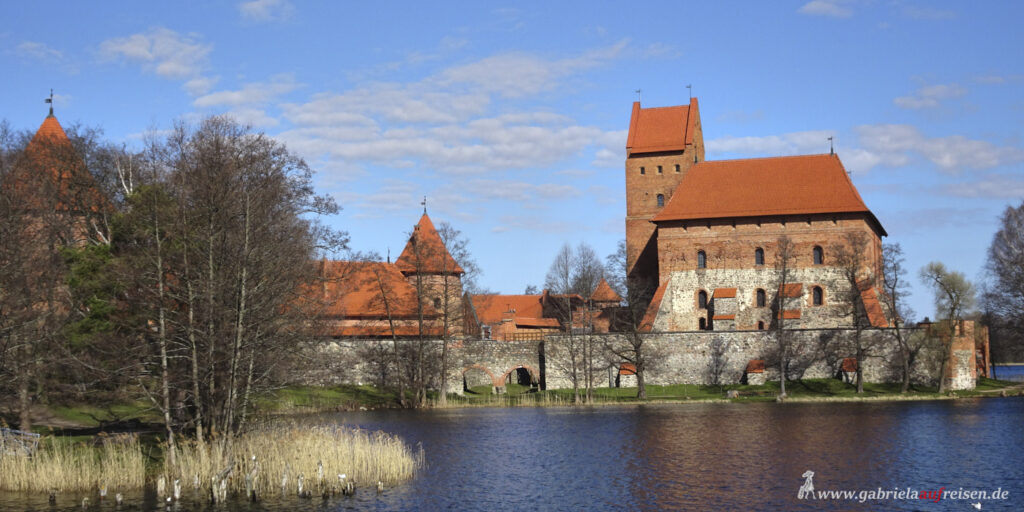
Of course, on the way there, we will visit the famous moated castle of Trakai. We do not enter it via the long wooden walkway, but from the water. A boat shows us around and we are allowed to get off directly at the entrance. It was built in the 14th century and destroyed in 1655 in the war with Russia. Inside the museum there are old photos that show that there was not much left of the now proud castle when the reconstruction was planned at the end of the 19th century.
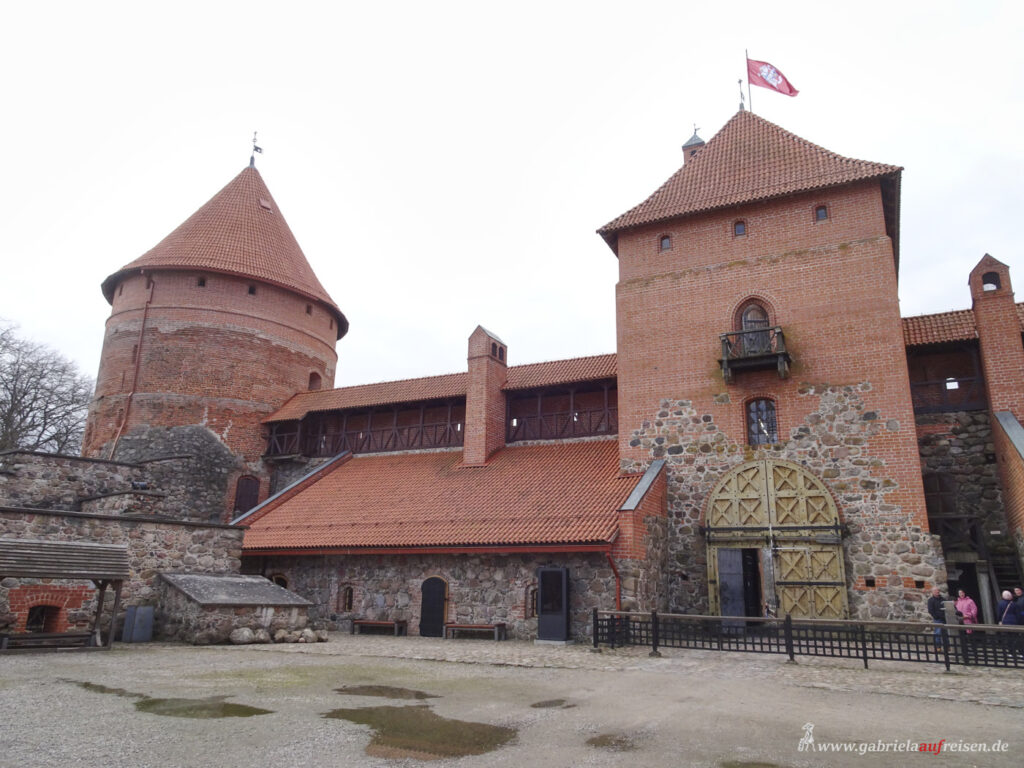
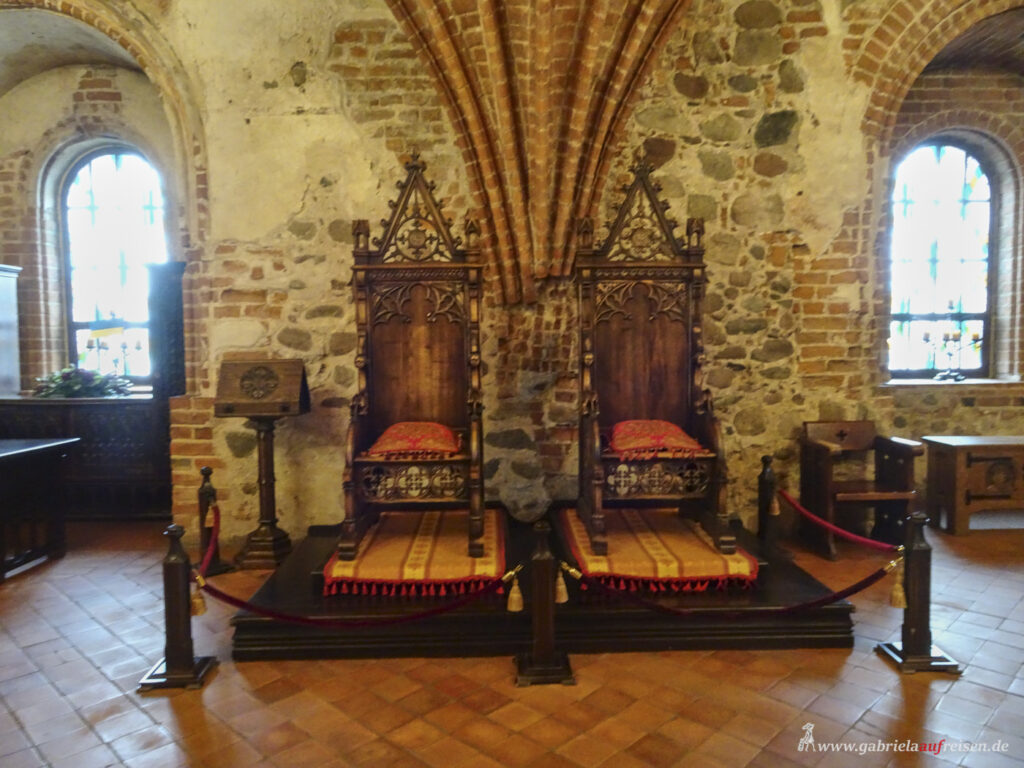
Farm Break
We spend our lunch break on a farm, where we enjoy a hearty meal. When preparing the dessert, we literally have to lend a hand ourselves. We turn the skewer for the “treecake” over the open fire. This cake is so delicious!
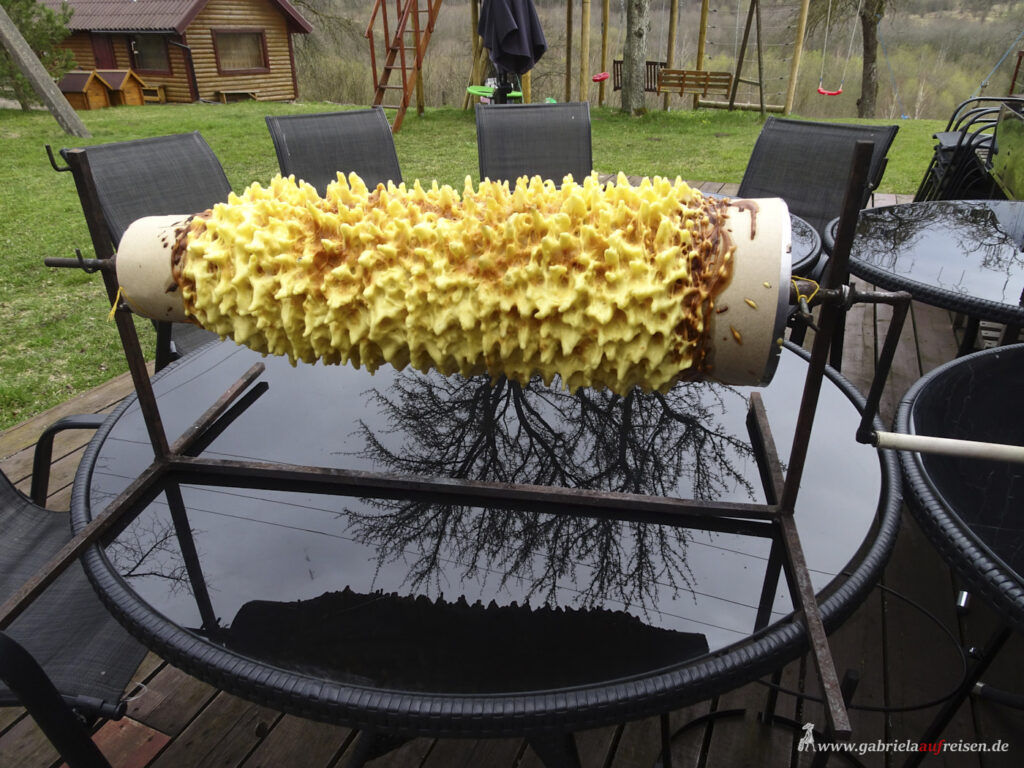
Unfortunately, there are still many kilometers of driving ahead of us to
Klaipeda
In the evening we reach the Hotel National in the old town of Klaipeda. It is very “vintage”, but the location and breakfast are good.
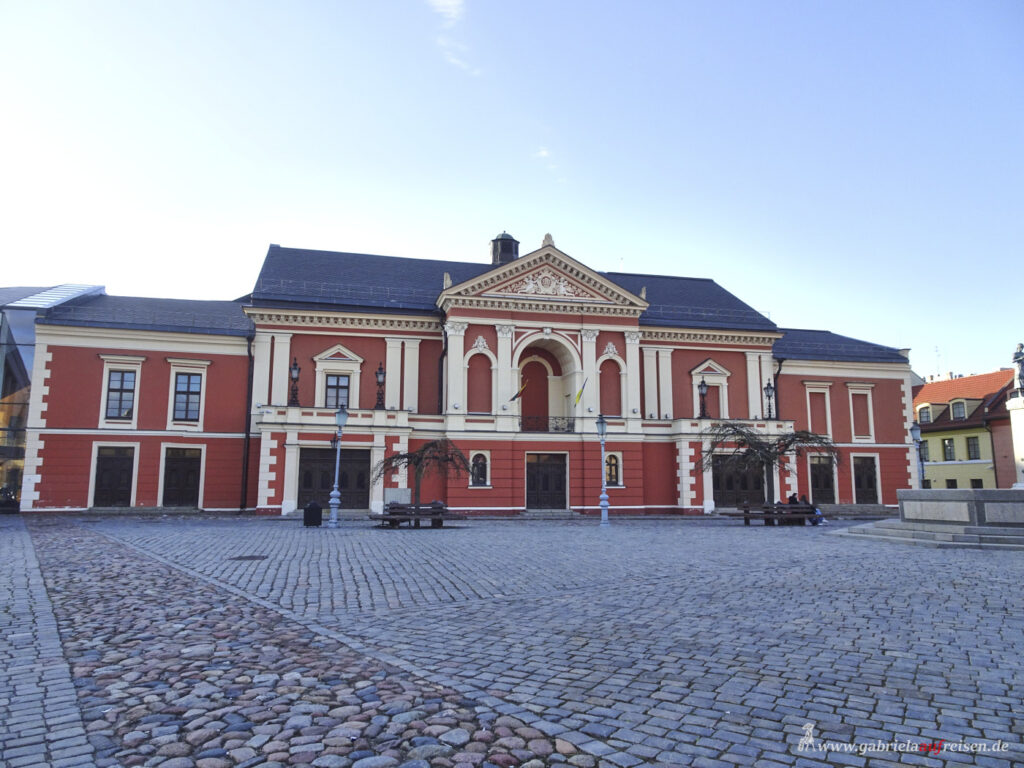
We get to know the old town on a short tour. In the port there are ferries and later in the summer also cruise ships. We end the evening in the “corner pub” attached to the hotel. The food is delicious and recommended. Many locals also appreciate this.
Curonian Spit, my absolut highlight in Lithuania
In the morning we take the ferry to the Curonian Spit, a narrow offshore island that is almost 100 km long. One part belongs to Lithuania, one part to Russia.
The headland of the Curonian Spoit in Lithuania consists of sand that has accumulated there due to ocean currents after the last ice age. The forest that holds the sand together was cut down at the latest in the Seven Years’ War and so the huge dunes began to wander and buried 14 villages under them. About 200 years ago, reforestation began. The still existing large dune near Nida loses a lot of sand and thus in height due to the steady west wind. Nevertheless, we do not only climb them via the wooden walkways, but another one, too.. Most parts are under nature conservation or are located in the restricted area to Russia. No wonder that many moose, wild boars and reindeer can be found here.
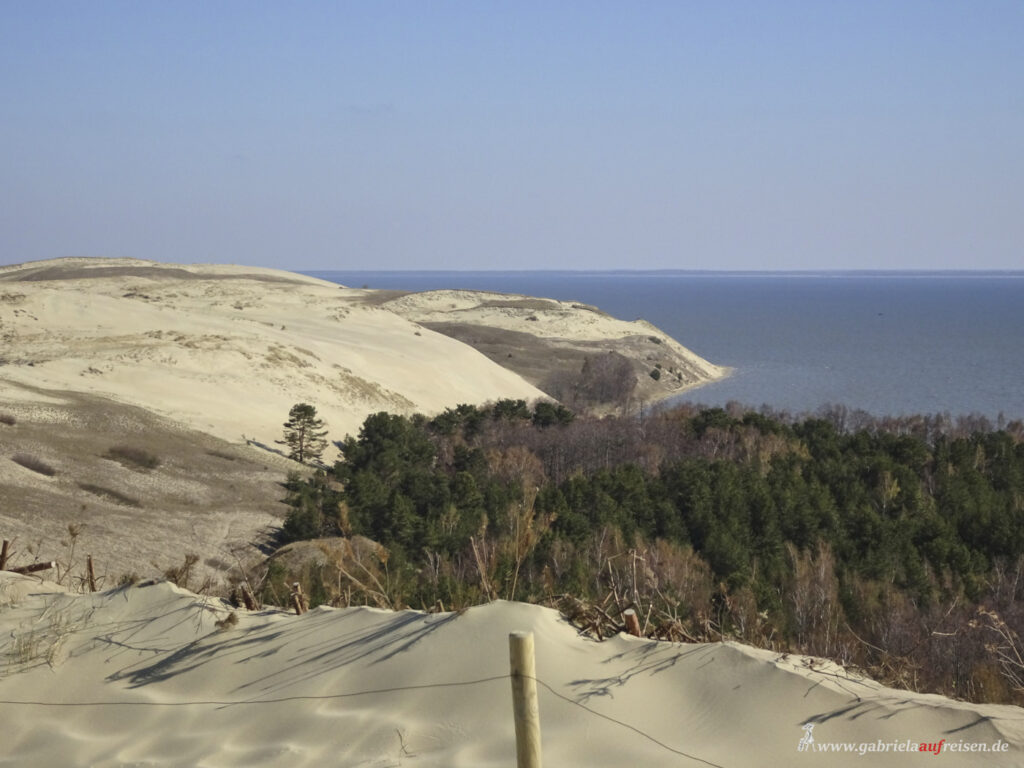
On a boat trip on the lagoon, we come up to 200 meters close to Russia and get observed by a pair of white-tailed eagles.
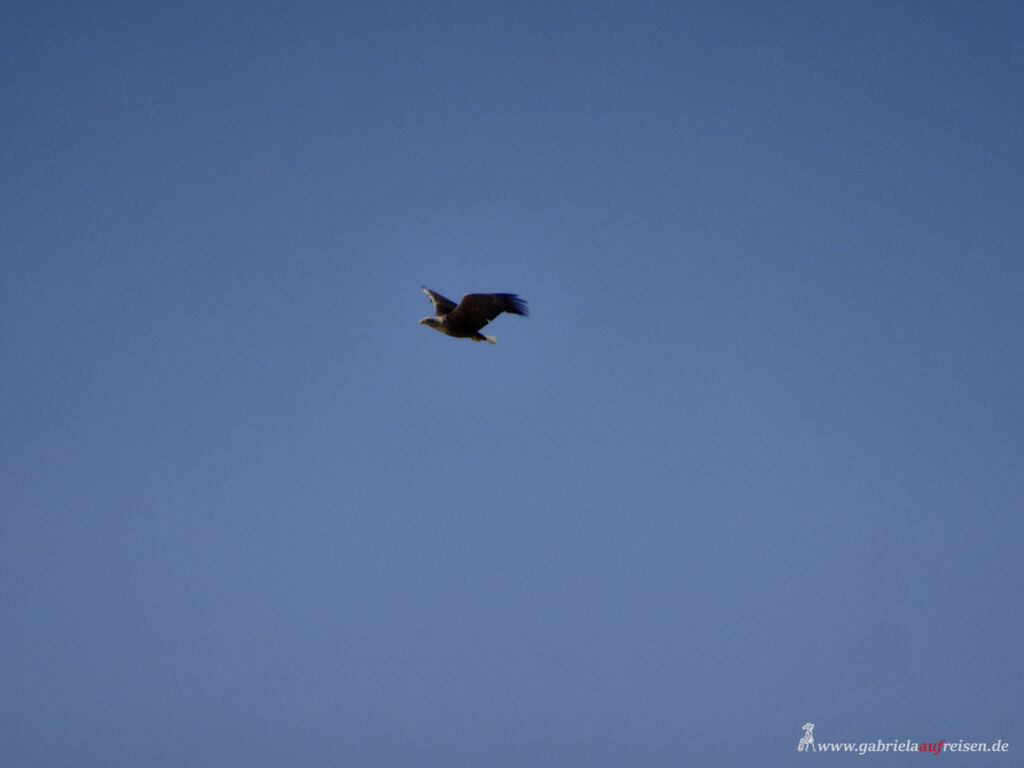
Sightseeing in Nida
Before I stroll through the tranquil village of Nida with its colorful wooden houses, I visit the Thomas Mann House, which is located on a hill and offers a wonderful view over the lagoon. Thomas Mann spent some summers here with his family before the Second World War. Meanwhile it is a small museum.
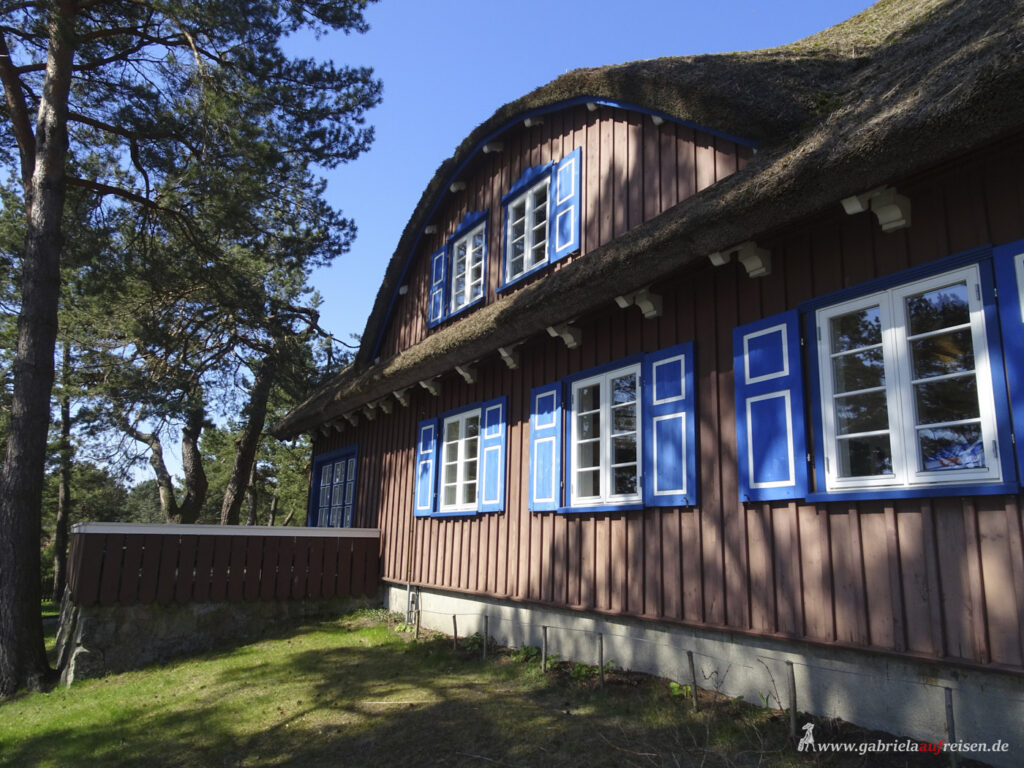
At the amber museum in Nida I try to smooth a little piece of amber. It´s not as easy as it looks and you need a lot of time.
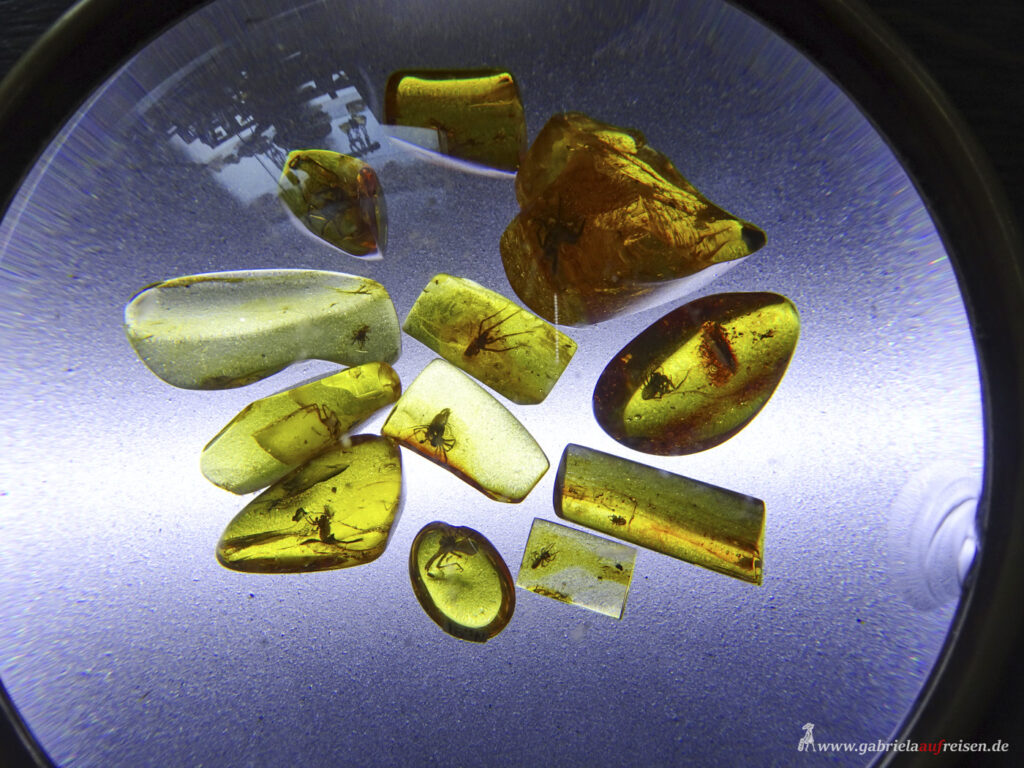
So, the day passes at the sea with cloudless skies. Finally, together with my group of clients, I eat a smoked fish platter. Delicious!
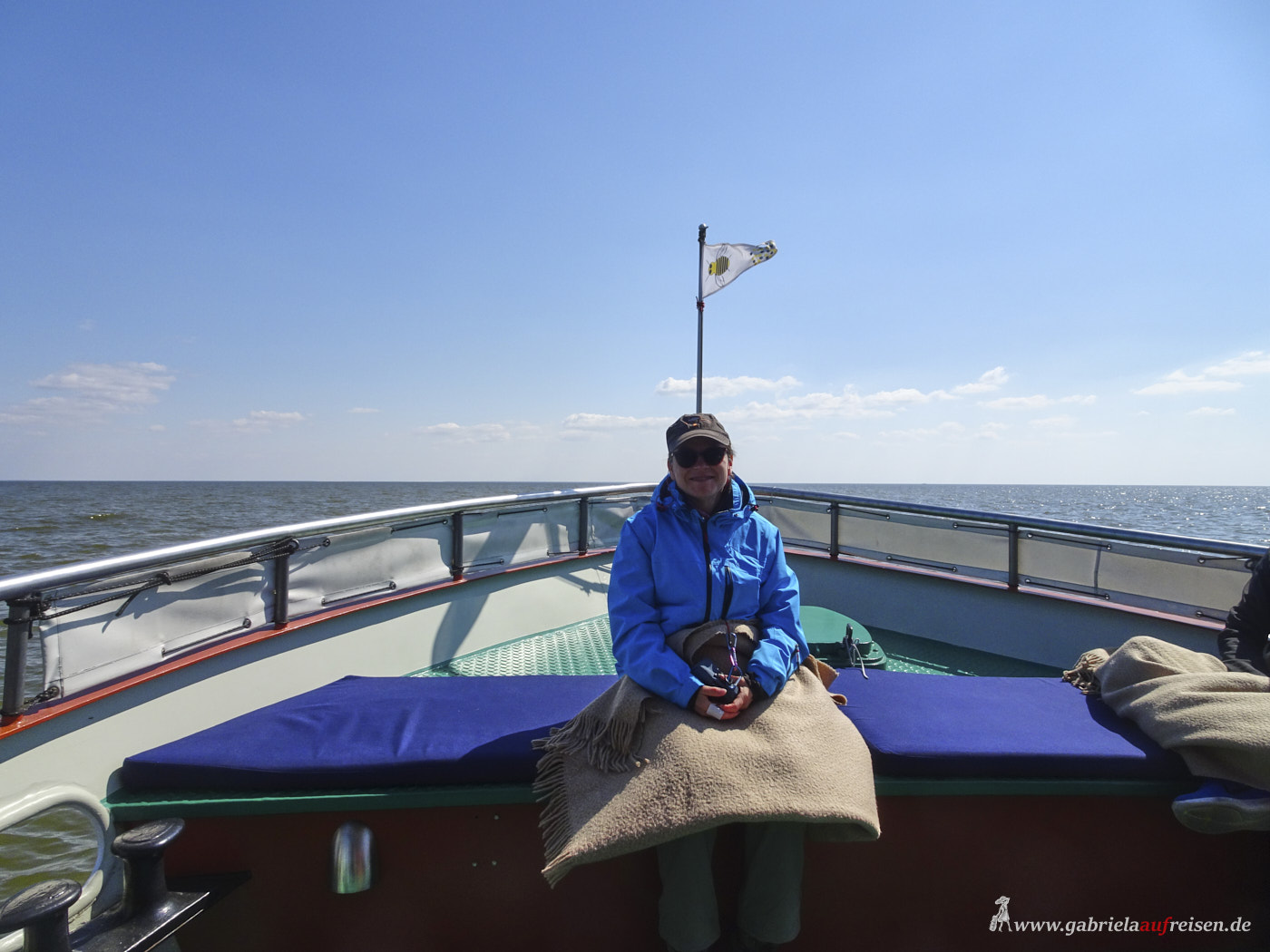
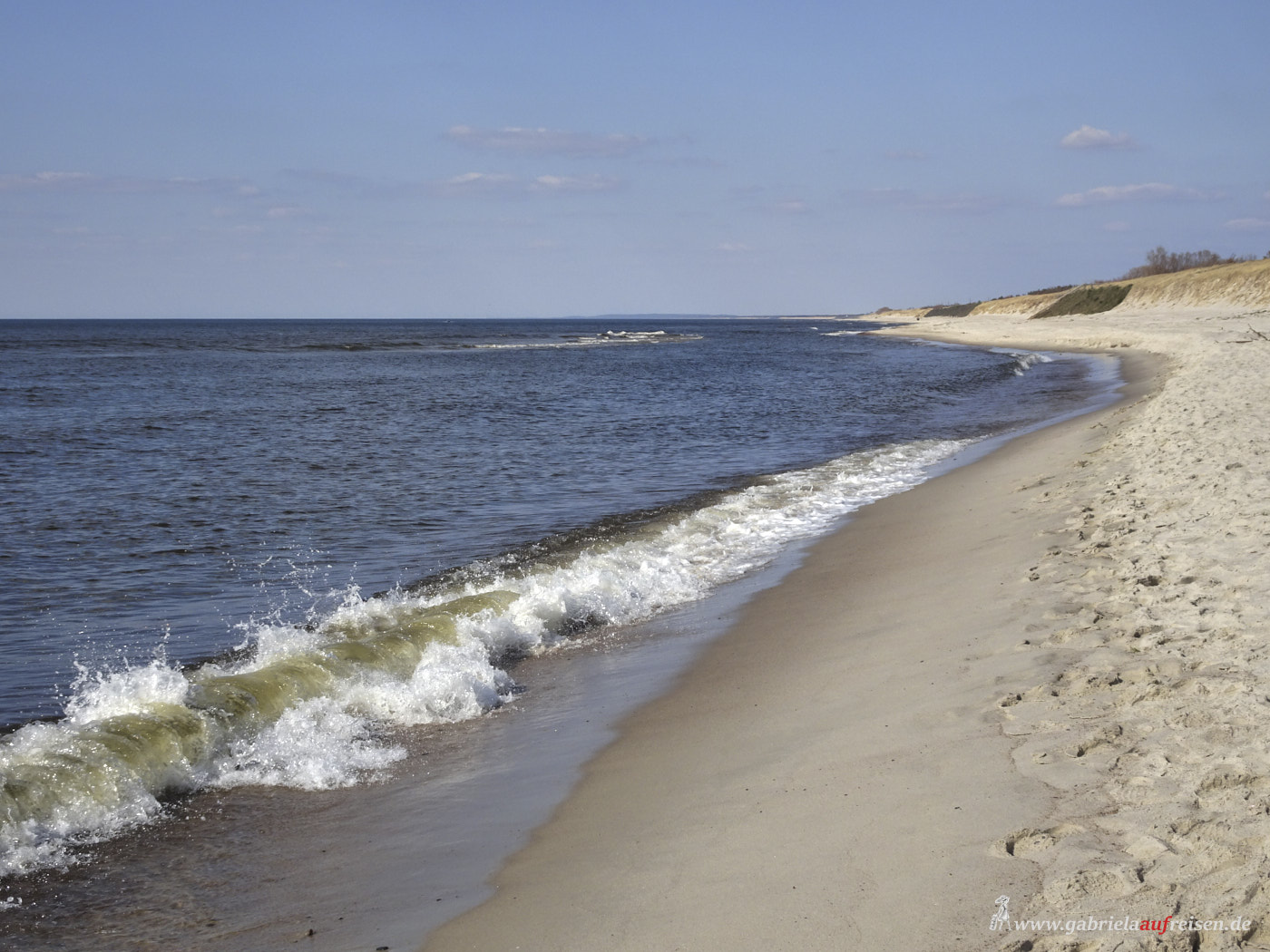
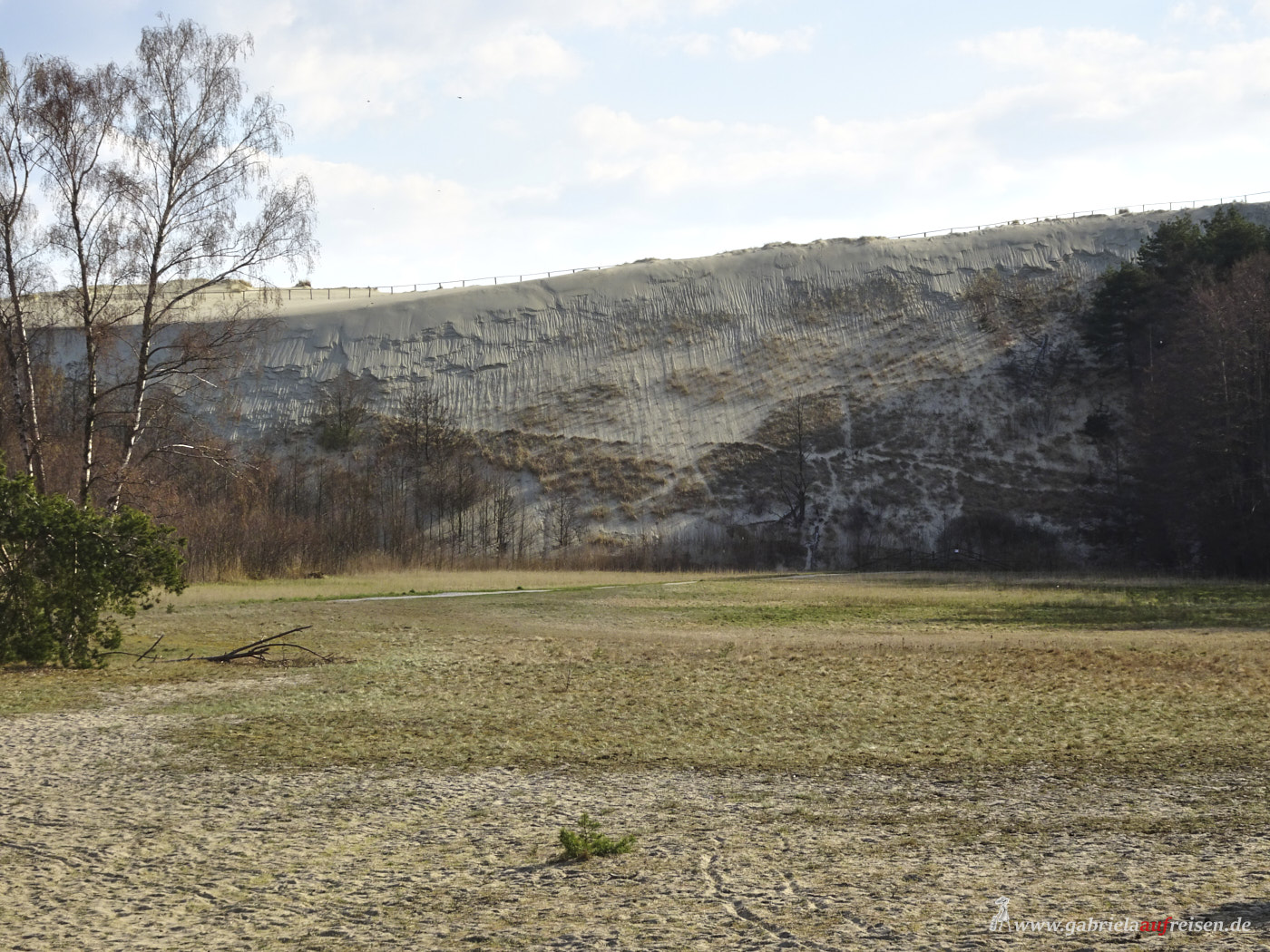
At the end of our tour, saturated and a bit tired after the approximately 10km walk, which we have brought behind us today, we let ourselves be driven back to the hotel by our bus driver.
Mountain of Crosses in Lithuania
Before leaving Lithuania the next day, we visit the “Mountain of Crosses” near Šiauliai. Countless crosses are still laid down or erected here every day by believers. Even Pope John Paul II read a Mass here in 1993.
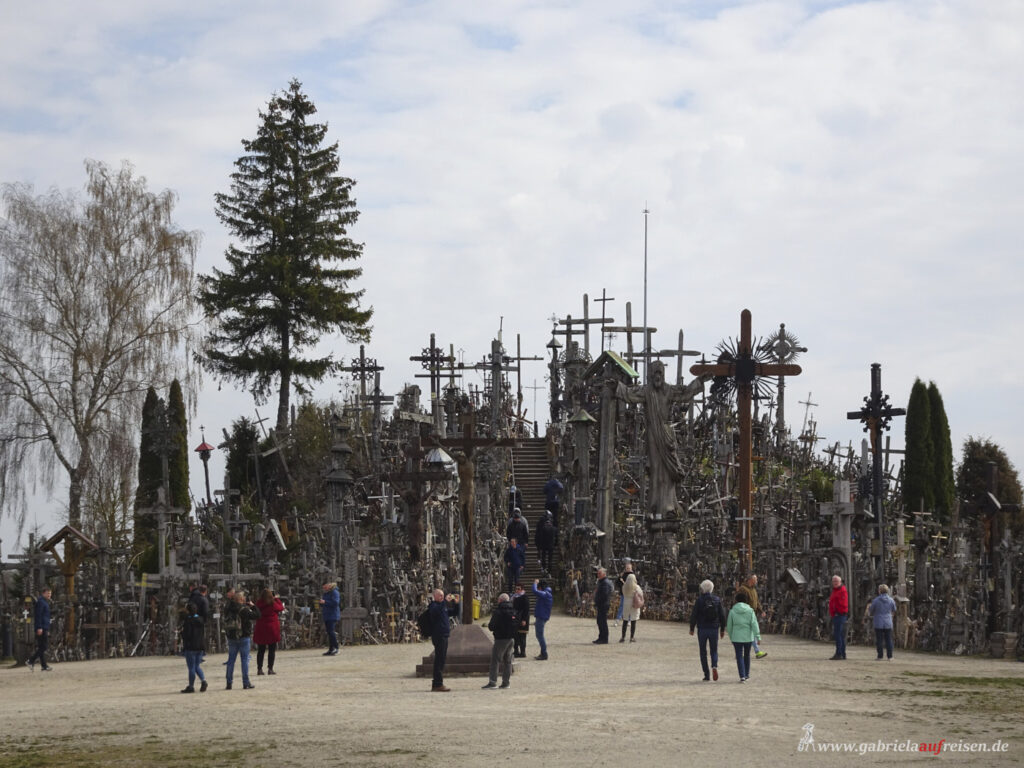
Nevertheless I smell fire as I climb uphill. As I learn and see later, just two days earlier, a part of the hill burned down.
In my 2nd part of the “Baltic Impressions” I tell you a little about Latvia.
If you want to know how the tour continues, just subscribe to my newsletter and you will receive a short info about the release.
You can´t wait to know what I´ll see in Riga, in the next few days? Read, what I did on my former trip.
Always up-to-date pictures and news are also available on Facebook, Instagram or Pinterest. I look forward to your comments and “likes”.
Follow me!
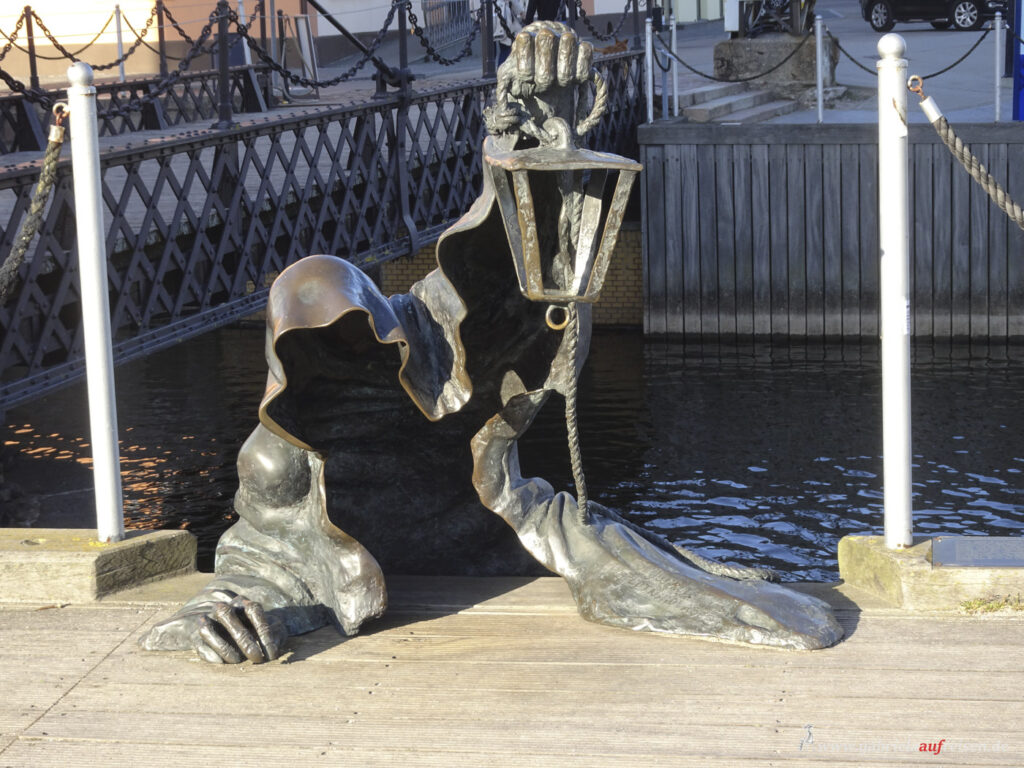
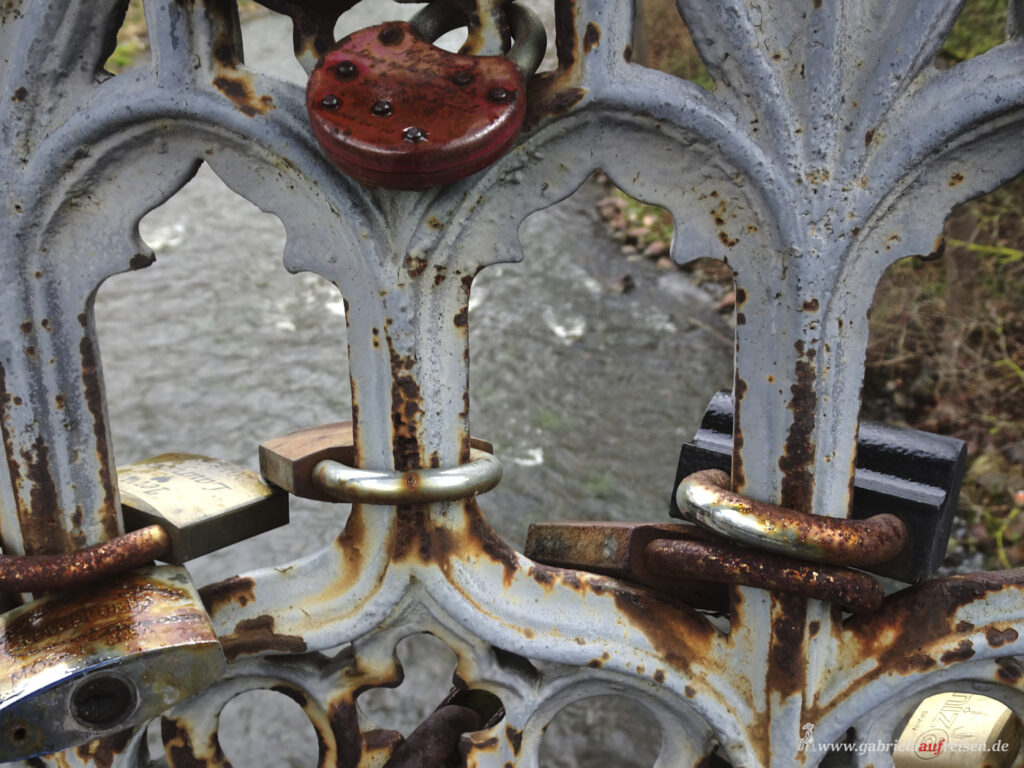
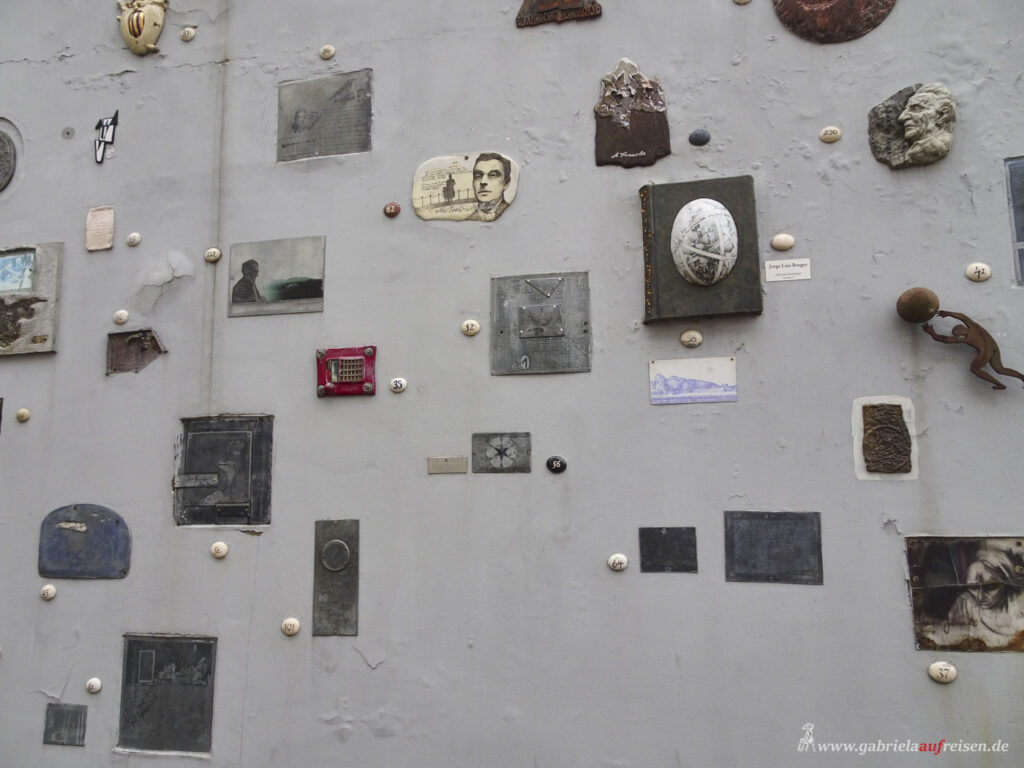
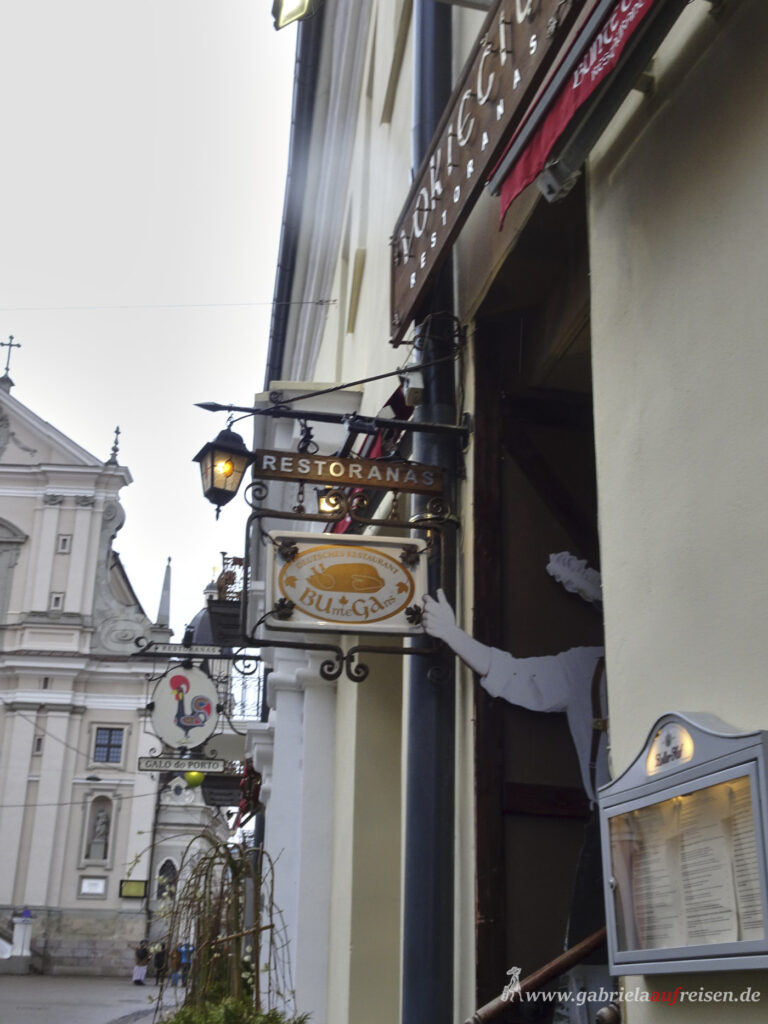
[…] you missed the first two blog posts about Lithuania and Latvia, that´s where you find them. Facebook, Instagram and […]
[…] I’ll report on this in my next blog post. You missed the first part, my report on Lithuania? Then just look here. […]
Hi Gabriela. Yes, I still have relatives there, probably around the Kaunas region, but I don’t have any contacts or communication. When I went to the small town of Šventežeris I found the tiny church where there is some documentation, but I could not find anyone who spoke English to help me translate so I gave up. But I did get so eat some of the foods my grandmother would make (potatoes, potatoes, potatoes!) and that was delicious.
Church books can be very interesting for family history, l found, that many people speak English, the older ones only Russian, Maybe you could contact the priest or any heritage company. I think family history is very interesting. Lunch at the farm was very tasty.
Good luck for your next travels!
I enjoyed your impressions of Lithuania. Too bad it was raining there, but even the name “Lietuva” means something like ‘land of rain’. My grandparents came to the U.S. from Lithuania and I was lucky to visit there a couple of times. Small country and perfect for 4 days. Glad you enjoyed!
Hi Paul,
thank you! Do you still have relatives in Lithuania? I didn’t know the explanation of “Lietuva”. That’s interesting and certainly true.
Greetings
Gabriela